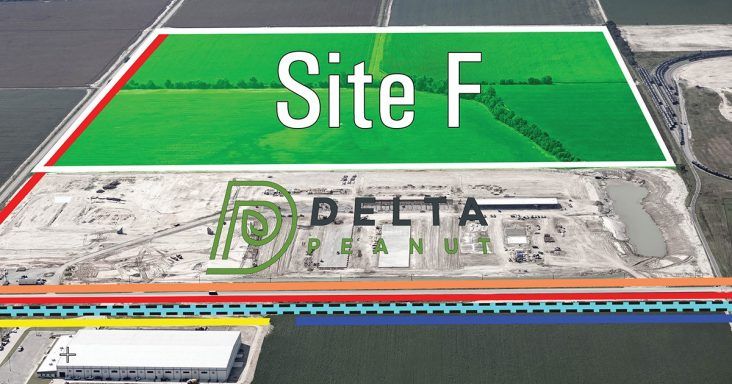Jonesboro touts ‘Opportunity Zones’ as good investments
by February 27, 2020 4:05 pm 1,817 views

Image courtesy Jonesboro Unlimited
There is an effort underway to spur investment in blighted and impoverished areas of the state, and there are several places in Jonesboro that have been designated as “Opportunity Zones” (OZs), a community development program established by Congress under the Tax Cuts and Jobs Act of 2017. It’s meant to spur investment in targeted areas across the U.S.
A seminar about the program was held Thursday (Feb. 27) at First National Bank Arena detailing opportunities that are available in the investment zones.
In Northeast Arkansas, nine zones have been designated. Craighead and Mississippi counties each have three zones, while Crittenden County has two and Greene County has one.
The tax breaks for investing in businesses and projects within these poverty zones can be significant. A five-year investment will result in a 10% drop in the taxable gain, meaning if $100 was invested, five years later capital gains would only be collected on $90. If the investment stretches to seven years, the rate is 15%. After 10 years, it becomes all profit with no tax.
Capital gains can be acquired from a number of sources including real estate, stocks, mutual funds, businesses, and others.
Just about any type of business can qualify in an Opportunity Zone, as can property and equipment. The only businesses that don’t qualify on the front end are so-called “sin” businesses such as massage parlors, strip clubs, country clubs, golf courses and others.
One Opportunity Zone in Jonesboro includes the Craighead Technology Park, located in the eastern section of the city, Jonesboro Regional Chamber of Commerce President Mark Young said. The park, created in 1986, started with 750 acres and has since doubled, he said.
In the park, about 750 acres are available for development, he said. Site F, which is adjacent to the newly formed Delta Peanut LLC operation, is the largest single swath with 150 acres. The advantages at the industrial site are pretty simple, Young said.
“We are fortunate in our community to have an industrial park with significant infrastructure,” he said.
Demands for large quantities of water, sewer and electricity can be met, he said. Jonesboro has some of the cheapest utility rates in the country for its residents and industrial businesses, so it can deliver volumes of water and electricity at cost-effective rates. It’s one of the primary reasons the city has been able to lure several food manufacturers to the park during the past 20 years, he added.
The zone not only includes the park but a large area of rural, private land that surrounds it. The zone is 20 square miles, meaning if a business wanted to locate outside the park, it could still be part of the Opportunity Zone, Young added.
Opportunity Zones stretch from downtown Jonesboro to the Arkansas State University campus. City of Jonesboro land bank manager Jonathan Smith said the city owns several pieces of property within the zone, and if a developer is qualified and the project is a good fit for the area, it could happen.
One example is the former Wolverine manufacturing facility, he said. The facility needs some environmental improvements along with infrastructure upgrades. If the right project were to be proposed, the city might partner to assist with those improvements to get a viable tenant back in the building, he said.
Downtown Jonesboro is in the zone and a lot of development has taken place there during the past 10 years, Downtown Jonesboro Association Executive Director Lindsey Wingo said. St. Bernards just finished a $137.5 million renovation project, and several new businesses such as The Glass Factory have opened.
Jetton General Contracting has built a number of downtown “micro-lofts” that are small, modern loft-style apartments suited for college students, she said. The downtown area has about 130 lofts and other apartments.
City Director of Planning Derrel Smith told the crowd there is an effort underway to implement form-based codes in the city’s Opportunity Zones and some places not in the zones. Form-based codes are a way to develop and regulate how buildings and other structures such as sidewalks appear in the “public realm.”
Conventional zoning codes focus on private property and largely ignore how it impacts the public realm from a uniformity standpoint. Form-based codes focus on the form of the structures first and their function is a secondary concern. That lets developers and investors know before construction begins exactly what the how a neighborhood or city street will develop before any work actually begins.
The process works as follows. An investor invests capital gains into an Opportunity Zone fund. The funds have to meet the Opportunity Zone criteria to qualify. Once the fund is established, the fund can then find business projects for investments.
